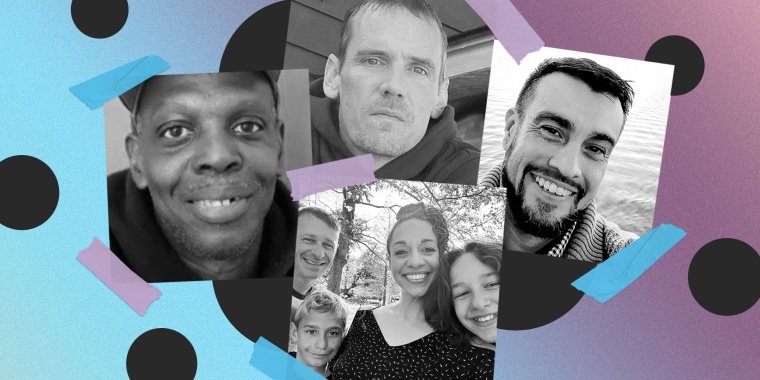For the estimated 20.5 million people in the United States in recovery for substance use disorder, there's no one goal: Recovery is a spectrum.
For some, "successful recovery" can be defined as total sobriety, with no drug or alcohol use. Others define their recovery as being able to go about their lives without having their days defined by unsafe drug use, or by using the "California sober" method where they eliminate some vices but not all. Some use opioid substitution therapy (also known as medically assisted treatment), which replaces illicit drugs with prescribed, research-backed options like methadone or buprenorphine.
TODAY spoke with several people who consider themselves to be in recovery to learn about what their journeys have been like, what works for them and what recovery really means.
Kristina Jacob
Kristina Jacob, 39, is a recovery support services specialist at Faces and Voices of Recovery in Georgia.
To get through (two traumas at an early age), I started experimenting with drugs. A few years later, I met a man, and he was on the same path. He later became my husband. We were very, very similar, and I felt for the first time that I could just be myself — flaws and self-destruction and all — and we just continued down that path. There wasn’t anything rock-bottom about it.
Then I got pregnant with my second child and it changed something inside of me. I wanted to be better. I wanted to not have to drink or use substances. I knew I had to do something. My husband and I were both using methamphetamines and opiates and other prescription medications. When my son was born, that’s when I found recovery.
I tried several programs, including Narcotics Anonymous and six detox programs, before entering a 28-day rehab program.
Five days into that, I learned that I had lost everything. I lost custody of my two kids, who were 3 years old and 8 months at the time. I was evicted from my home and lost everything I’ve ever owned. My husband had made the front page of the newspaper and been arrested. That’s how I started my recovery journey, with nothing left to lose. I really dug in. I just wanted those kids back. I wanted to be the mom they deserved.
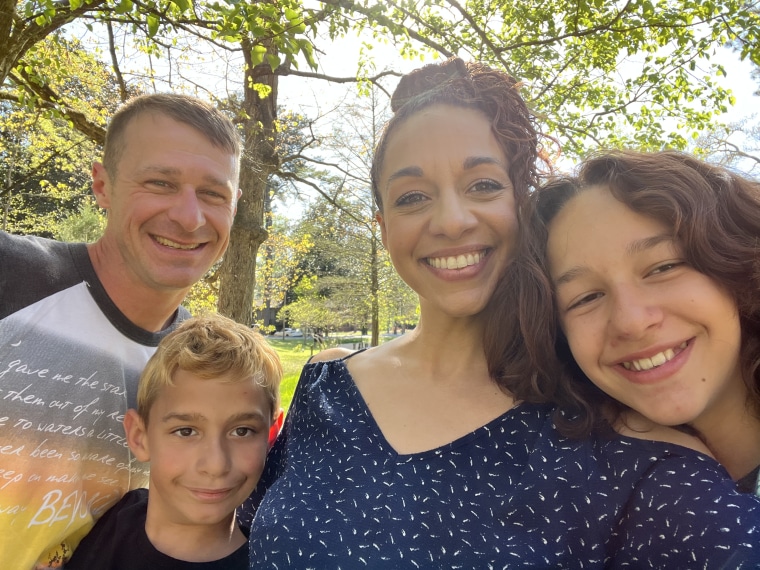
After those 28 days, I did an intensive outpatient treatment. I was granted full custody within three months, which was a miracle. My husband was doing better, so we ended up reconnecting, but it just wasn't his time. During the time when we got back together, I had a setback, and that lasted about nine months, until I had a non-fatal overdose.
That was the last day I picked something up. That was my wake-up call.
Recovery means everything to me. I would absolutely have nothing in my life without recovery. I wouldn't have my kids, I wouldn't have my home, I wouldn't have my job, I wouldn't have my friends. I wouldn't have my husband back in my life, now celebrating three years of his own recovery. I wouldn't have the connections that I cherish. It means everything.
Jeffery Foster
Jeffery Foster, 57, is an outreach worker at VOCAL-NY, a harm reduction organization in New York City.
My life was chaos. The reality of being homeless was crazy. I had to use drugs to stay numbed up to get through that but not want to kill myself. Then I found harm reduction with VOCAL-NY, an organization in the city.
The people there helped me get into a shelter, helped me get a part-time job, helped me reconnect with my son and realize what I was using the drugs to ignore. My life changed after that. I started realizing what was important. I was still using, but everything started to come back.
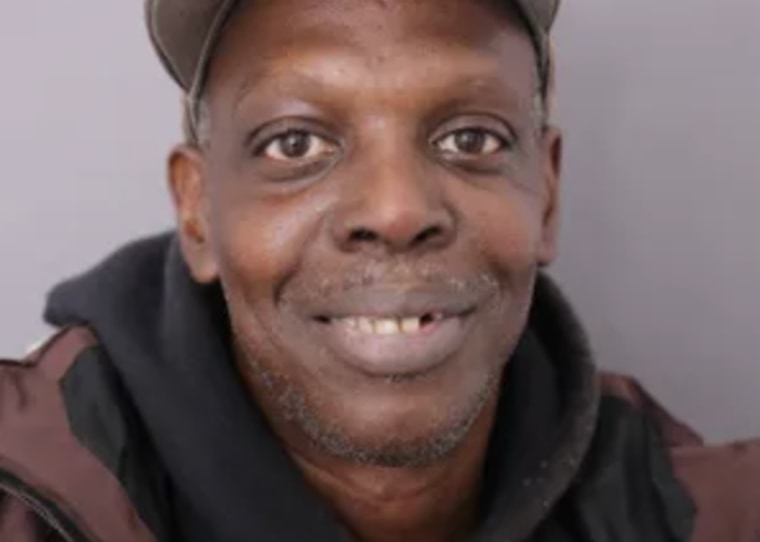
Now, I stay sober more than I stay behind, and that’s a great start for me. You have ups and downs, but you have to have the tools for when those down times come. When you fall, you have to get back up fast and get back on that bike, and that’s what I do today. If I stay down, I’m going to lose my car, my house, everything. I know this.
My goal is to one day never pick up drugs again. That’s my goal, but I work one day at a time, and when I slip, I start again. I don’t count the days. I don’t count the months. I just make sure I don’t stay there.
Lyndsey Nelson
Lyndsey Nelson, 64, is a mom of two in Vancouver, Canada.
I started using heroin and Valium around 13 or 14. At some point in my 30s, I decided "That’s enough," and started methadone, but was still using heroin and cocaine. A few years later, I wanted to have another child and I was getting close to my mid-30s, so I stopped using the street drugs and everything but methadone. I’ve been taking methadone since 1987.
If not for opiate substitution therapy, I honestly don’t think I would have survived.
Lyndsey nelson on how methadone saved her life
I do still take cannabis, which is legal where I live. I’ve been free of illicit drugs for 30 years. The cannabis made it a lot easier when I was ready to stop playing around with illicit drugs. Any time I would think about wanting to use, I could just smoke a joint instead, and illicit drugs weren’t in my mind anymore. That kept me from going back to street drugs.
I live with my daughter and my 6-year-old granddaughter. My daughter is also on methadone after some drug use earlier in her life. She’s almost seven years clean herself. Knowing my history, she knew she had options and that there was a way out for her.
I consider myself recovered. If not for opiate substitution therapy, I honestly don’t think I would have survived. My daughter and granddaughter are here and healthy, and if I hadn’t managed to get off the street drugs, none of this would be possible.
Benjamin Boyce
Benjamin Boyce, 41, is a researcher, author and podcaster in Denver, Colorado.
I grew up in one of the many towns that had very little to do for teenagers. I smoked weed as a kid but was in a social circle that stigmatized that stuff.
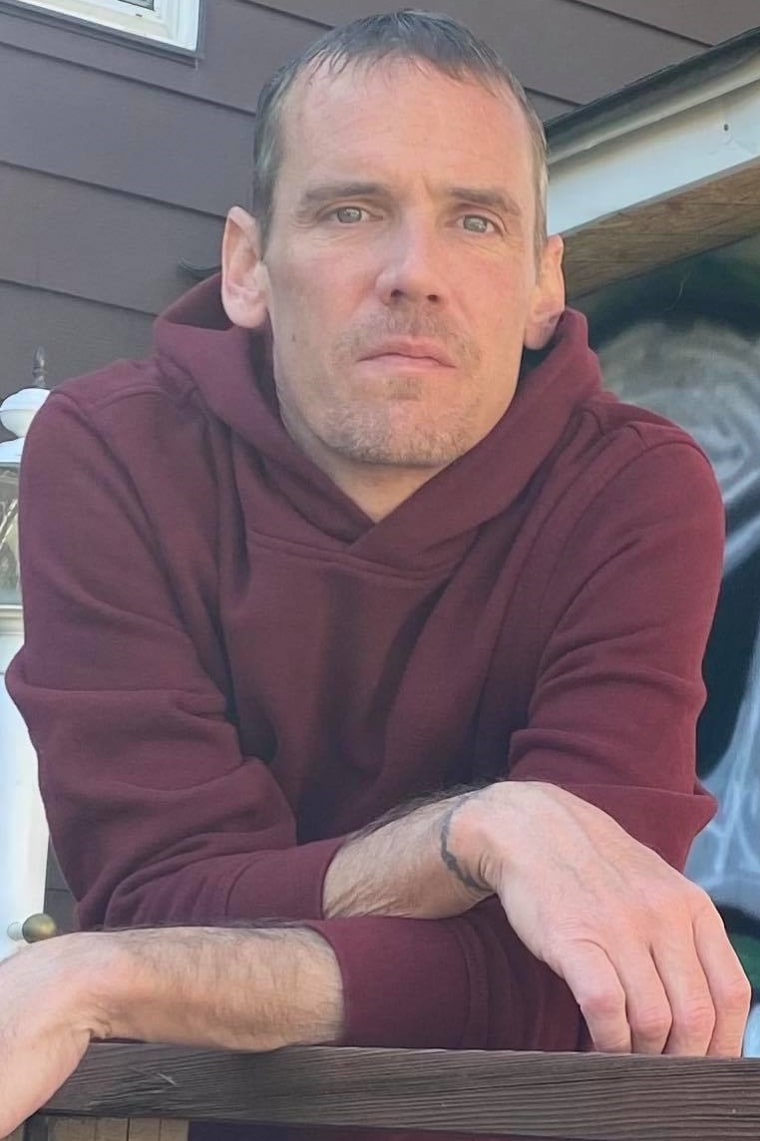
By the time I was 21, I’d been to jail probably a dozen times for various things, including four or five felonies. I went to prison when I was 24. At that time, I was using heroin, cocaine and medical fentanyl.
After my release, I got lucky and stumbled into a methadone clinic. I hadn’t even realized what, exactly, those were. I spent about three or four years on methadone. I was still using marijuana on a daily basis, but I was getting my college degree and all this other stuff. There were a lot of restrictions, though, and it was a lot of hassle, so finally I decided to taper off the medication.
Now, I’m in what I call a successful recovery that doesn’t fit the norm. I still use drugs, but I find myself more productive in life. Before, I’d been depressed and dealing with bad anxiety for years, thinking I had to be clean and sober because one slip was going to be it, and that’s a lot of weight to carry.
Successful recovery, to me, looks like getting up and having something to live for on a daily basis.
Joseph Hogan-Sanchez
Joseph Hogan-Sanchez, 42, is the director of programs at Faces and Voices of Recovery in Austin, Texas.
I am a native Texan and grew up in El Paso with a traditional family. I had a lot of guilt and shame around being gay. Growing up, I didn’t feel like I fit in, not only with my family but in school. I was called slurs and knew that I was different.
At the age of 12, I started to experiment with alcohol. It started with sharing some beers with my cousin on weekends. Then I would get drunk during lunch at school and pass out at my desk. In high school I got into harder substances, including cocaine and pills, and that drug use continued through college until I was living in Dallas. That’s when I found meth, which made me feel superhuman, until I wound up experiencing feelings of psychosis. At one point I experienced a non-fatal overdose.
Things came to a head when I was diagnosed HIV-positive. Finally, my parents sat me down and said, "You need to get help, and we found a place."
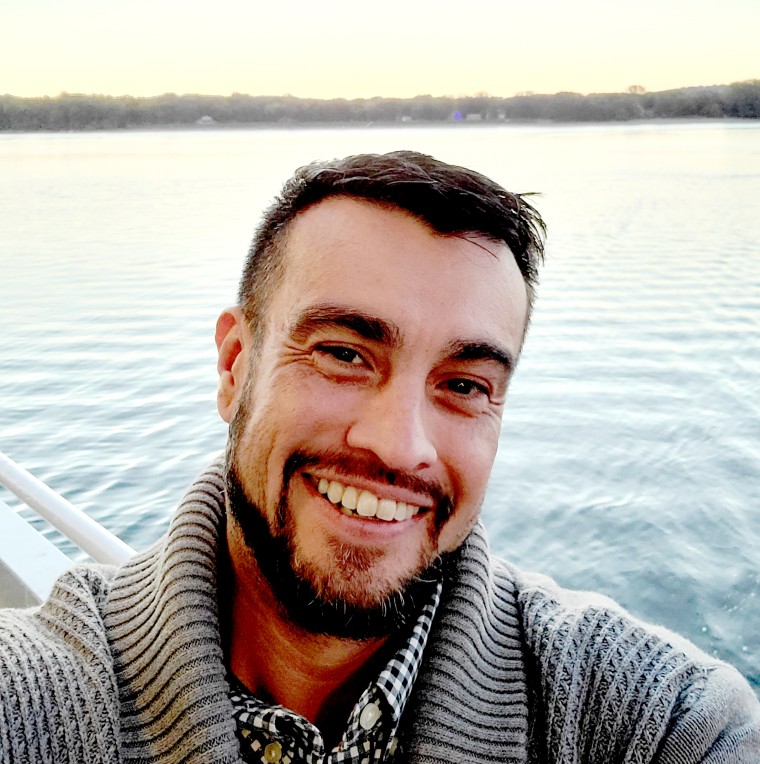
I went through a detox program, where I attended some 12-step meetings, then a 28-day stay at a residential recovery center that was run by people in recovery, for people in recovery. That was my safe place. That was where I started to make friends. That’s where I told people I was HIV-positive and they didn’t care. Any mountain I’d ever made out of a molehill, people there were like, "It’s OK. What can we do to help you in your recovery?"
Now I am entirely sober. For me, surviving that overdose was a second chance, and recovery is my third. Recovery means freedom. It means possibility. It means hope, and everything stems from that.
Related:
